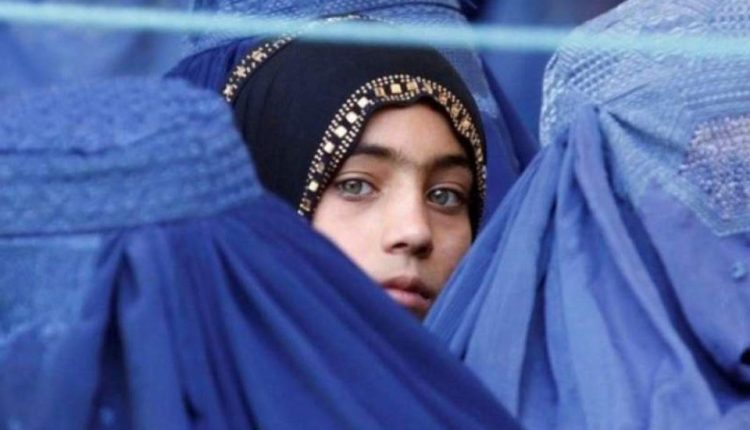Widespread global concerns over Taliban’s actions
Over the last 21 months, the Taliban have tightened the noose around the necks of Afghan women and dashed any hope that a “Taliban 2.0” would be different from its pre-2001 progenitors. But, deputy UN chief’s comments on the possible international recognition of the Taliban sparked concern and confusion.
Restrictions on women, which UN has described as “gender apartheid”
The humanitarian situation in Afghanistan continues to deteriorate. Some 40 million Afghans are grappling with increasingly repressive policies and insurmountable economic hardship. Two thirds of the country – some 28 million people – require humanitarian aid and roughly six million are “knocking on famine’s door.”
According to a March 2023 World Food Program report, 92 percent of Afghan households are “struggling to meet their basic needs.”
In addition to the Taliban’s education ban for girls and work restrictions on women, which the UN has described as “gender apartheid,” the de facto authorities have also nullified divorces, condemning countless women to return to abusive ex-husbands.
UN Security Council resolution calling on Taliban to swiftly reverse restrictions on women
The UN Security Council unanimously approved a resolution on Thursday, calling on Afghanistan’s Taliban rulers to swiftly reverse their increasingly harsh restrictions on women and girls, which range from severely restricting education to banning women from most jobs, public spaces and gyms.
The council condemned the Taliban’s ban on women working for the UN, a decision the resolution calls “unprecedented in the history of the United Nations.”
A rare moment of unity on a high-profile issue
The unanimous 15-0 vote, with the United States, Russia and China all in favor, was a sign of the widespread global concerns over the Taliban’s actions. It was a rare moment of unity on a high-profile issue at a time of steep international divisions over the Ukraine war, although both Russia and China criticized the United States after the vote for its past role in Afghanistan and for refusing to return all $7 billion in frozen Afghan government funds.
Security Council never considered sanctions against Taliban
The Taliban’s actions, however bewildering and upsetting to Afghans and Western observers alike, have shown that the leadership cadre has no plans to yield to foreign demands on how to run day-to-day affairs.
The Security Council never considered sanctions against the Taliban.Taliban elders have proved as resistant to condemnations and expressions of “deep concern” from abroad as they have been to Western economic sanctions.The message from Kabul is clear: Western attempts to punish the Taliban will only impose hardships on the Afghan people.
But, the strong rebuke by the UN is a blow to the prestige of Taliban, who is trying get credibility on the global stage – including formal recognition by the United Nations as Afghanistan’s legitimate government.
UN may be considering recognition for Taliban
On May 1, UN Secretary General Antonio Guterres will host an international meeting on Afghanistan to discuss a “durable way forward.” The two-day closed-door conference in Doha, Qatar, will bring together envoys from various nations to “clarify expectations” and “advance an approach based on pragmatism and principles, combined with strategic patience, and to identify parameters for creative, flexible, principled and constructive engagement.
Moreover, the appointment of senior Turkish diplomat Feridun Sinirlioğlu as UN Special Coordinator on Afghanistan suggests the international body may be considering recognition for the Taliban.
In the recent past, Sinirlioğlu has advocated for conditional normalization and, in a 2021 speech at the UN Security Council soon after Kabul fell, Sinirlioğlu said: “We believe that gradual engagement with the Taliban is the right approach. We need to communicate with them to see if they will keep their promises. [The Taliban] need to gain our trust by putting their words into action.”
UN: Taliban not invited to UN Doha meeting on Afghanistan
UN Secretary-General Antonio Guterres has not invited the Taliban administration to a meeting that he is convening with special envoys on Afghanistan from various countries in Doha next week, a U.N. spokesperson said on Friday.
“The Secretary-General has not extended an invitation to the de facto authorities,” said U.N. spokesperson Stephane Dujarric.
Last week the United Nations had to stress that the meeting will not focus on the possible international recognition of the Taliban administration after comments by the deputy UN chief sparked concern and confusion.
Doha meeting would be wise to heed lessons of flawed 2020 Doha Agreement
If the Doha meeting is a move towards engagement and recognition, envoys would be wise to heed the lessons of the flawed 2020 Doha Agreement. Any agreement would need to be conditions-based and a mechanism for enforcement put into place.
At upcoming talks, the UN must condition progress with verified compliance of the new Afghan government’s earlier promises.
Sources: responsiblestatecraft.org, apnews, reuters

